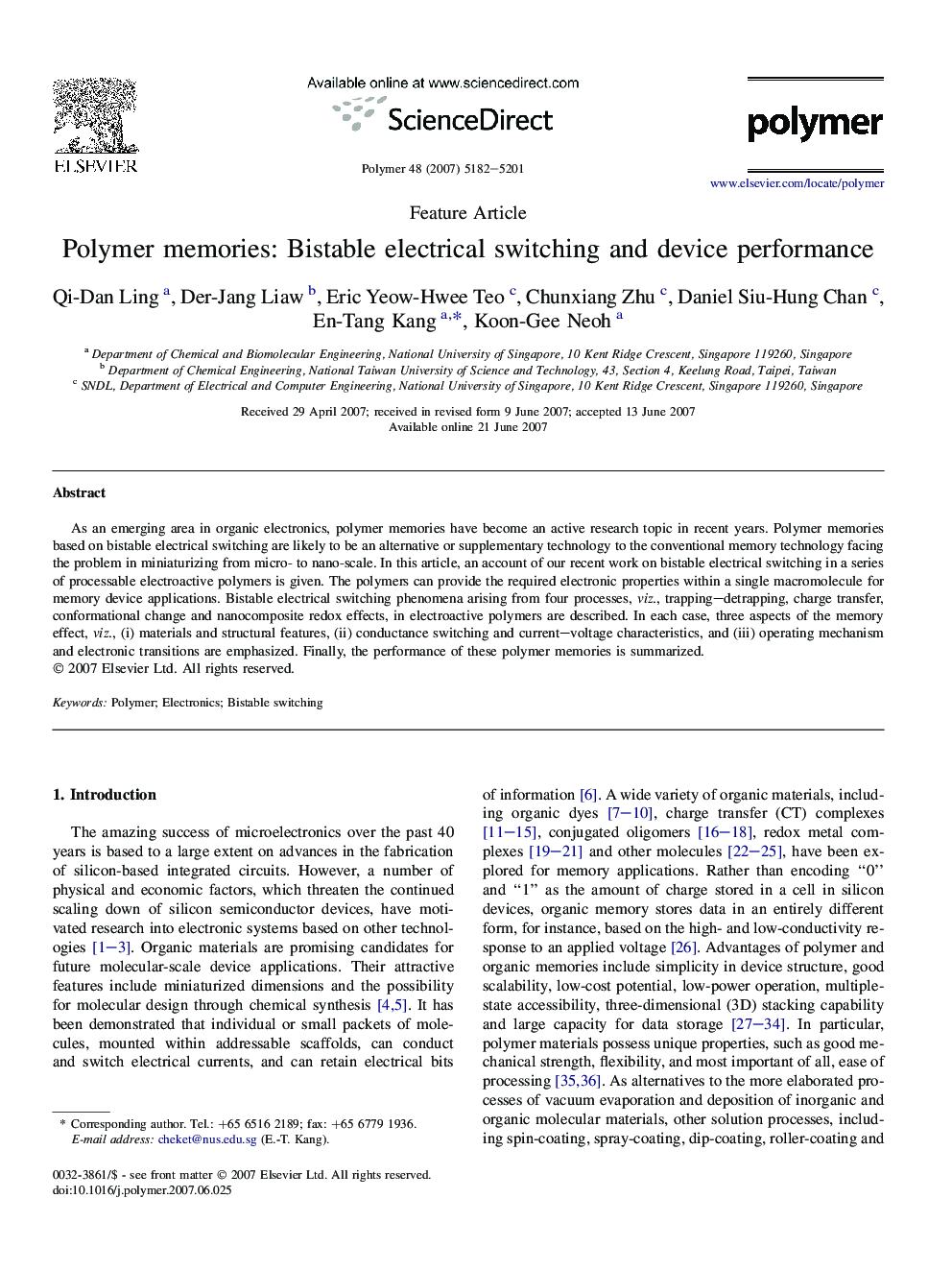| Article ID | Journal | Published Year | Pages | File Type |
|---|---|---|---|---|
| 5185796 | Polymer | 2007 | 20 Pages |
Abstract
As an emerging area in organic electronics, polymer memories have become an active research topic in recent years. Polymer memories based on bistable electrical switching are likely to be an alternative or supplementary technology to the conventional memory technology facing the problem in miniaturizing from micro- to nano-scale. In this article, an account of our recent work on bistable electrical switching in a series of processable electroactive polymers is given. The polymers can provide the required electronic properties within a single macromolecule for memory device applications. Bistable electrical switching phenomena arising from four processes, viz., trapping-detrapping, charge transfer, conformational change and nanocomposite redox effects, in electroactive polymers are described. In each case, three aspects of the memory effect, viz., (i) materials and structural features, (ii) conductance switching and current-voltage characteristics, and (iii) operating mechanism and electronic transitions are emphasized. Finally, the performance of these polymer memories is summarized.
Keywords
Related Topics
Physical Sciences and Engineering
Chemistry
Organic Chemistry
Authors
Qi-Dan Ling, Der-Jang Liaw, Eric Yeow-Hwee Teo, Chunxiang Zhu, Daniel Siu-Hung Chan, En-Tang Kang, Koon-Gee Neoh,
